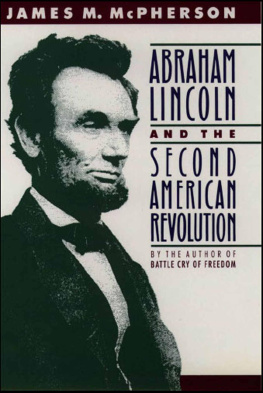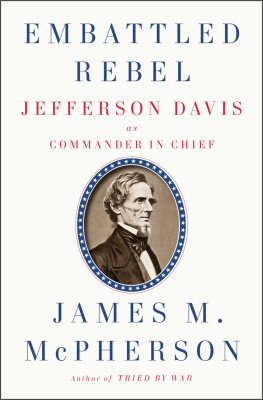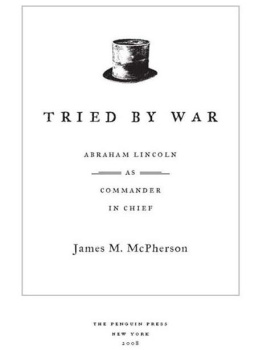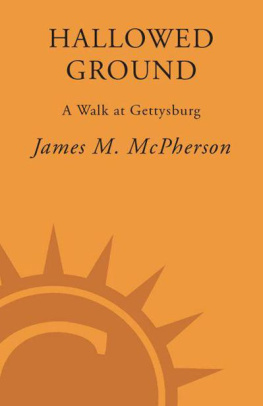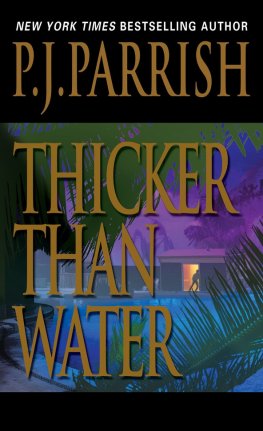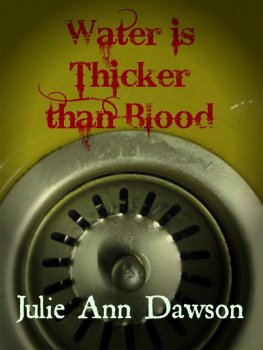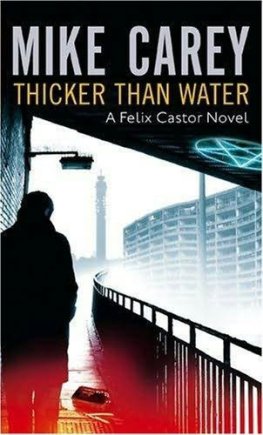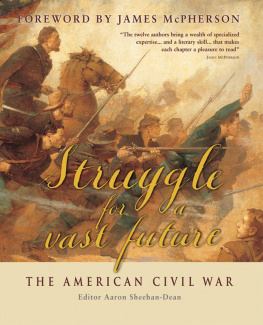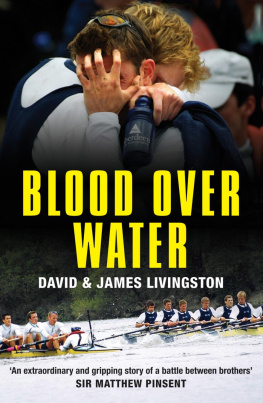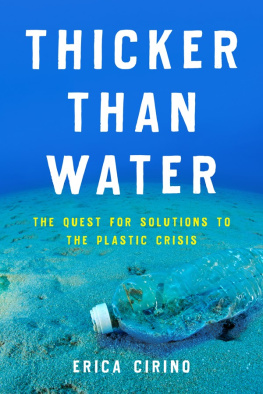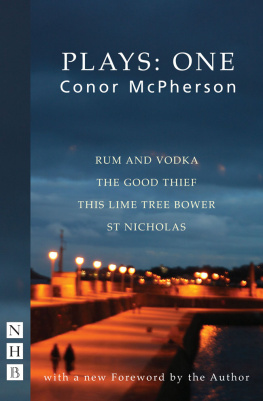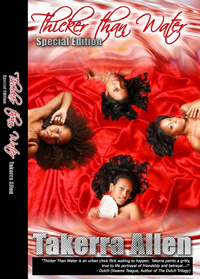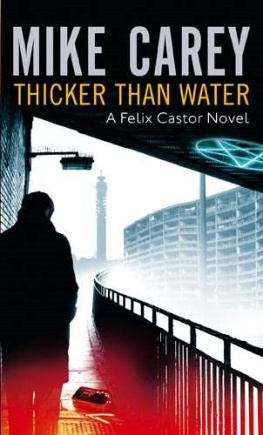James M. McPherson - Is Blood Thicker Than Water?
Here you can read online James M. McPherson - Is Blood Thicker Than Water? full text of the book (entire story) in english for free. Download pdf and epub, get meaning, cover and reviews about this ebook. year: 1998, publisher: Random House of Canada, genre: Politics. Description of the work, (preface) as well as reviews are available. Best literature library LitArk.com created for fans of good reading and offers a wide selection of genres:
Romance novel
Science fiction
Adventure
Detective
Science
History
Home and family
Prose
Art
Politics
Computer
Non-fiction
Religion
Business
Children
Humor
Choose a favorite category and find really read worthwhile books. Enjoy immersion in the world of imagination, feel the emotions of the characters or learn something new for yourself, make an fascinating discovery.

- Book:Is Blood Thicker Than Water?
- Author:
- Publisher:Random House of Canada
- Genre:
- Year:1998
- Rating:4 / 5
- Favourites:Add to favourites
- Your mark:
- 80
- 1
- 2
- 3
- 4
- 5
Is Blood Thicker Than Water?: summary, description and annotation
We offer to read an annotation, description, summary or preface (depends on what the author of the book "Is Blood Thicker Than Water?" wrote himself). If you haven't found the necessary information about the book — write in the comments, we will try to find it.
Is Blood Thicker Than Water? — read online for free the complete book (whole text) full work
Below is the text of the book, divided by pages. System saving the place of the last page read, allows you to conveniently read the book "Is Blood Thicker Than Water?" online for free, without having to search again every time where you left off. Put a bookmark, and you can go to the page where you finished reading at any time.
Font size:
Interval:
Bookmark:

T HE B ATTLE C RY OF F REEDOM
Pulitzer Prize Winner
This is magic. I was swept away, feeling as if I had never heard the saga before. Accounts of the Civil War usually sacrifice either detail to narrative flow, or narrative to detail. Mr. McPherson does neither. This is historical writing of the highest order.
The New York Times Book Review
Absolutely brilliant. The finest single volume on the war and its background. Battle Cry of Freedom is a beautifully written narrative.
The Washington Post Book World
Splendid. Looks like the standard for the next three decades.
Newsweek
A vivid portrait of antebellum America. McPherson seems to have picked out the richest of the copiously rich Civil War material. It must surely be, of the 50,000 books written on the Civil War, the finest compression of that national paroxysm ever fitted between two covers.
Los Angeles Times
Brisk, lively, even at times tart. Grant, Lee, Sherman, Jeb Stuart, Stonewall Jackson, so many others: an American military pantheon. McPherson does his starry cast justice. He brings to vivid life not just commanding officers, but enlisted men, politicians, Abolitionists, Southern fire-eaters, Northern barnburners, Copperheads, Know-Nothings.
The Boston Sunday Globe
McPherson handles all with a beautifully organized, compelling narrative and prose whose occasional leap into modern ebullience should captivate a new generation of Civil War readers.
Chicago Tribune
This is an epic story told in epic style, written in clear, luminous prose. A zesty, meaty intellectual feast that will nourish and satisfy the reader.
The Houston Post
Exhaustively researched, written with skill and assurance. This book may not be superseded in our time.
Newsday
Is Blood Thicker Than Water?
James M. McPherson is best known for his classic work on the American Civil War, The Battle Cry of Freedom, which won the Pulitzer Prize for non-fiction. He is also the author of many other books on the subject, including Ordeal By Fire, The Atlas of The Civil War, Marching Toward Freedom and The Abolitionist Legacy. He is a professor in the Department of History at Princeton University.
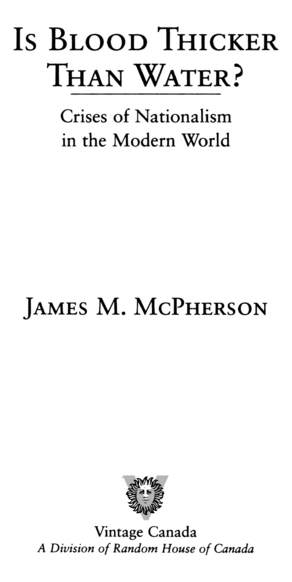
For Jenny and Jeff
C HAPTER O NE:
A Tale of Two Nations
C HAPTER T WO:
Ethnic versus Civic Nationalism in the American Civil War
I am grateful to David Frum and his family for the opportunity to deliver the Barbara Frum Lecture in honor of the memory of one of Canadas foremost journalists. I am also indebted to David Frum for his initial suggestion of a topic for this lecture, the origins of civil wars, which set me to thinking about nationalism. To a native Canadian whom I have never met, Michael Ignatieff, I owe an intellectual debt of sizable proportions; his book, Blood and Belonging: Journeys into the New Nationalism, provided me with the framework of ethnic and civic nationalism for the lecture and for this book. I must also thank Elisabeth Sifton of Hill and Wang Publishers for calling Blood and Belonging to my attention. Doug Pepper of Random House of Canada has been a most encouraging editor who suggested sources to help me overcome my embarrassing ignorance of Canadian history and listened patiently to my half-formed ideas. Professor R. Craig of Toronto University also offered useful suggestions about Canadian sources.
A T ALE OF T WO N ATIONS
T HIS IS THE STORY of a geographically large country in North America with a federal form of government. The population of this country considered themselves to be two distinct peoples, each concentrated mostly in a discrete region, with conflicting interests that threatened to divide them into separate nations. What held them together in the early years was a shared fear of domination by another country. As the decades passed, the people in one region remained mostly rural and agricultural, conservative in their cultural and religious outlook, with minimal educational facilities that served the elite but left many of the rest illiterate. The other region diversified its economy, established a flourishing system of education that created almost universal literacy, built an impressive transportation infrastructure, experienced growing urbanization, and attracted most of the large number of immigrants who entered the country to gain the benefits of its dynamic economy. As a consequence, this region grew in population, prosperity, and cultural diversity faster than the other region, which saw its share of the national population gradually shrink from half to little more than a quarter.
These developments kindled the smouldering tensions that had always existed between the two peoples. Bankers, investors, and industrialists in the more modernized region gained control of sectors of the others economy. Cultural leaders in the more advanced region disparaged the backwardness of those in the other. The increasingly multicultural society of the majority population, which had expanded into a continent-wide affiliation of like-minded regions, provoked a fierce defensive response in the other, which closed ranks in an aggressive reaffirmation of its distinct society. A not-so-quiet revolution of cultural and economic nationalism emerged in the minority region to modernize its economy, improve its educational system, raise the consciousness and self-confidence of its people, and liberate them from a self-perceived colonial subordination to the majority and make them masters in their own house.
Political power became a weapon in the minoritys effort to consolidate its distinctiveness in its home region and protect its status in the larger federation. At home a militant regional party enacted restrictive legislation against those suspected of identifying with the majority in the rest of the country. This legislation had the effect of forcing many within the minority region to emigrate a consequence not unwelcome to those who intended to become masters in their own house.
So long as the minority region remained in the national federation, however, its people continued to fear a threat from without to their distinct society within. To ward off this threat, they turned to coalition politics and a quest for constitutional reform at the federal level. Over a period of several decades, a majority of voters in the minority region combined with fluctuating pluralities of voters in other regions, and they won control of the federal government most of the time for more than half a century. During much of that time, a political leader from the minority region was head of the federal government. As the not-so-quiet revolution of consciousness raising accelerated in the minority region, the federal government under this party leaned over backwards to accommodate many of the demands from the minority region to protect its special interests.
These accommodations did not go far enough for some leaders in the minority region, whose decreasing proportion of the national population created something of a siege mentality. Many residents of this region became convinced that, if they were to remain masters in their own house, they must take that house out of the national federation; the two peoples must become two nations. As a step in that direction or perhaps as a step to forestall it from happening, depending on ones point of view a political leader in the minority region proposed a form of sovereignty association in which the minority and majority regions would each exercise a separate sovereignty over most matters of domestic concern within its borders.
Font size:
Interval:
Bookmark:
Similar books «Is Blood Thicker Than Water?»
Look at similar books to Is Blood Thicker Than Water?. We have selected literature similar in name and meaning in the hope of providing readers with more options to find new, interesting, not yet read works.
Discussion, reviews of the book Is Blood Thicker Than Water? and just readers' own opinions. Leave your comments, write what you think about the work, its meaning or the main characters. Specify what exactly you liked and what you didn't like, and why you think so.

